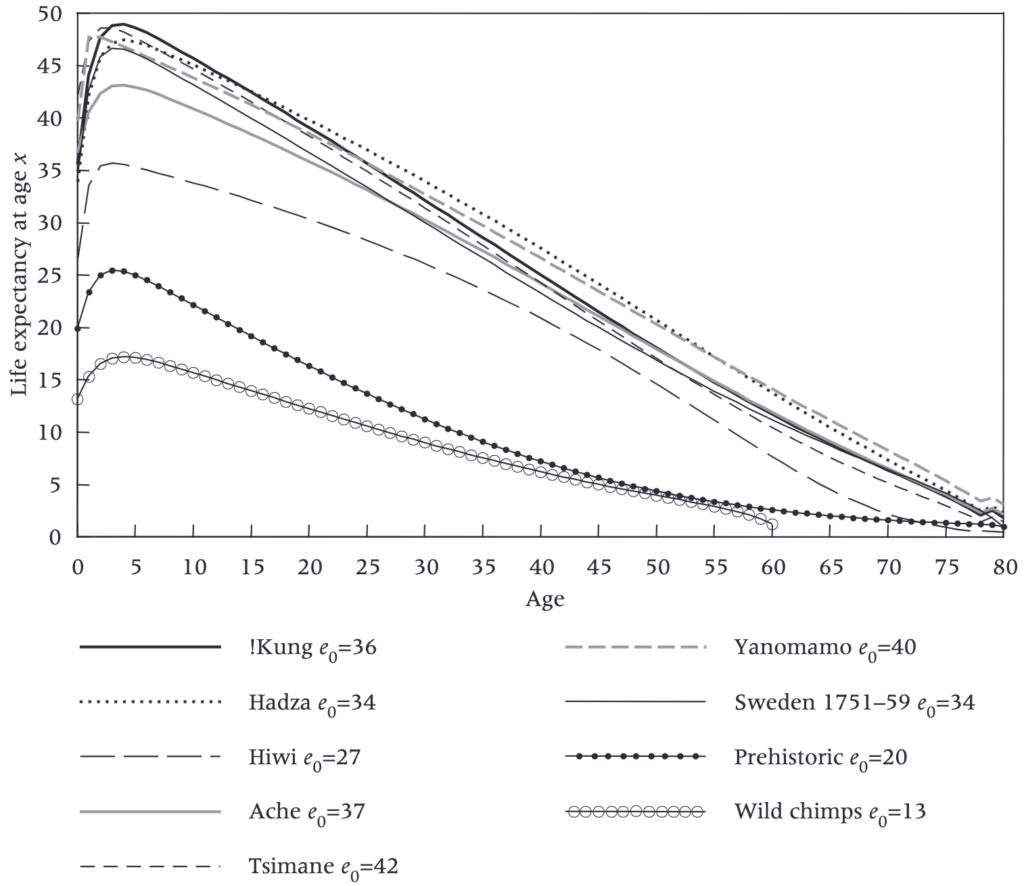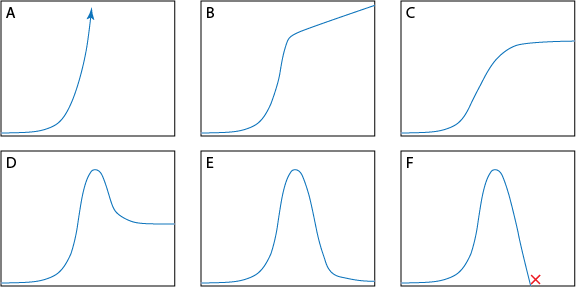A while back, I came across a fascinating paper from 2007 by Gurven and Kaplan on longevity among hunter-gatherers that helped me understand aspects of what life was (and is) like outside of modernity. My interest is both a matter of pure curiosity, and to gain perspective on how desperate life feels—or doesn’t—to members of pre-agricultural (ecological) cultures.
I wrote last year about the perceived perils of early human life in Desperate Odds, in the context that to us members of modernity, having never been weened from the teat of agricultural output, it seems like life without agriculture (and supermarkets) would be a virtual death sentence. Add to this a perceived vulnerability to predation from lions and tigers and bears (oh my!), and the mental image that emerges—as depicted by Daniel Quinn in Ishmael—is of a stressed and starving hunter following the tracks of elusive prey as twilight darkens, while a predator is close on his trail, audibly breathing. It feels like a knife edge of survival: everything has to go just right, but teeters on all going horribly wrong.
The core argument from the Desperate Odds post was that surviving to reproductive age was obviously common, or our species would wink out. This simple fact makes daily survival a near-guarantee—enough so that fear of death is not top-of-mind most of the time, allowing most brain cycles to go toward less-troubled, routine activities.
It was either in preparing that post or in connection with A Lifetime Ago that I ran across the aforementioned paper. In this post, I dig in to see what insights can be gained from survival models for various human cultures.
The Attention-Grabber
Let’s start with the plot that caught my eye and drew me in, which is Figure 3 in the paper.

Let’s see if it draws you in as well.
Continue readingViews: 6689





